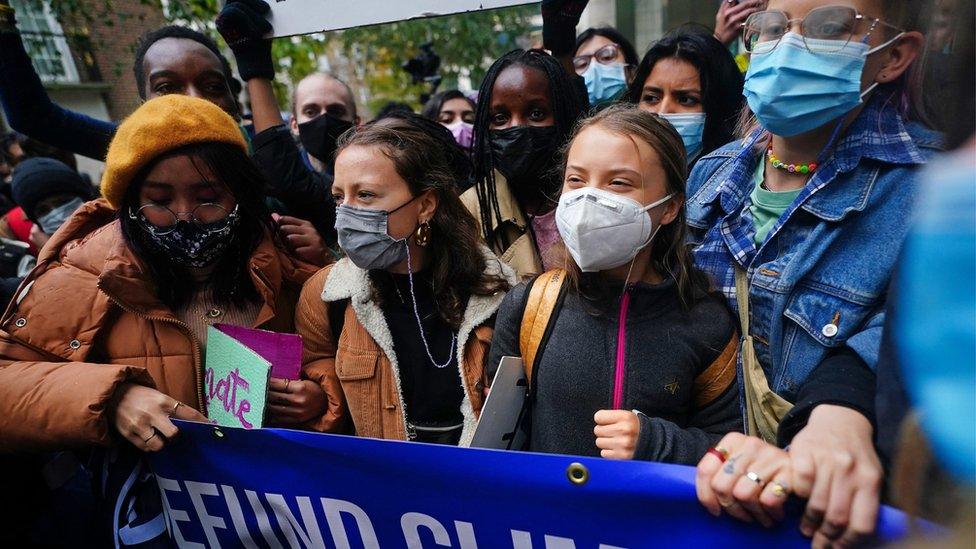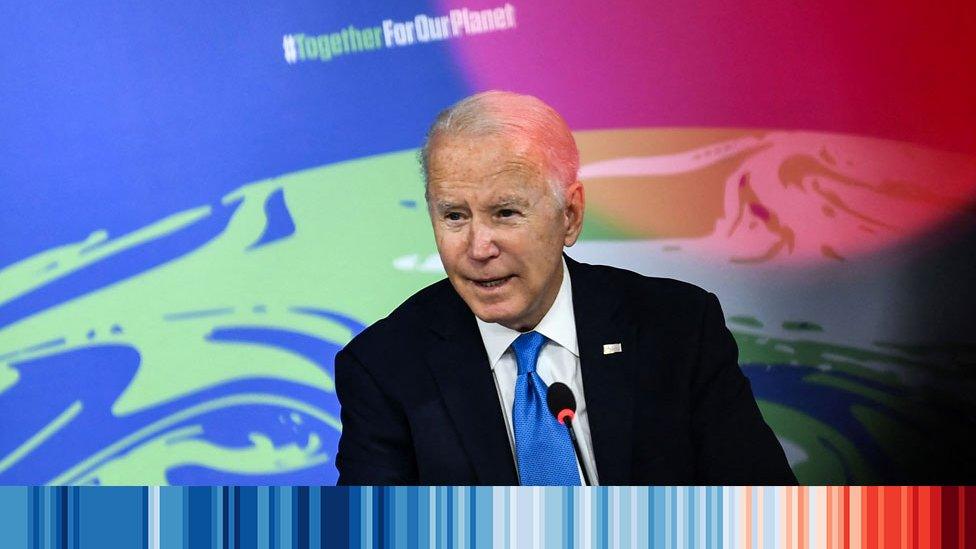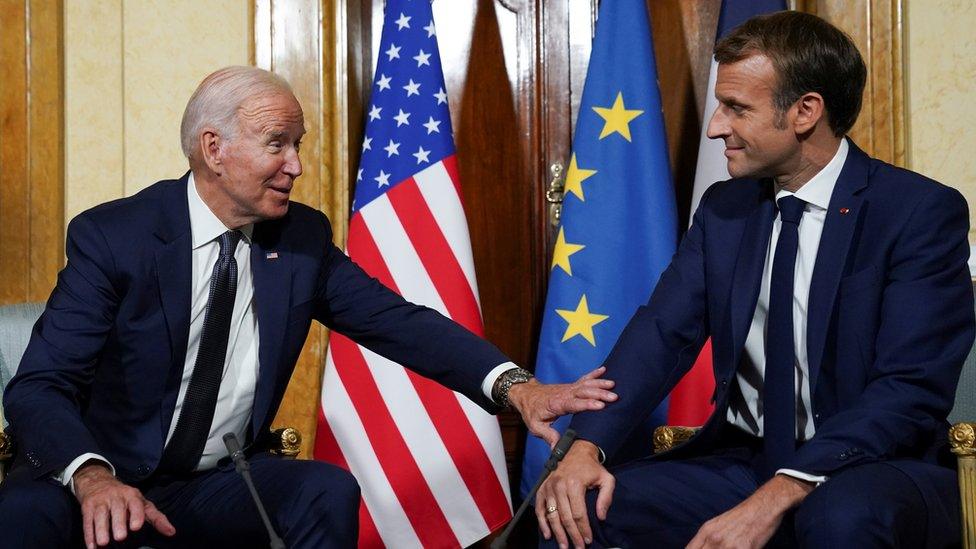Greta Thunberg: Activist calls on banks to stop funding climate 'destruction'
- Published
Climate change activist Greta Thunberg says it is "very unclear" if she has been officially invited to the COP26 summit.
Greta Thunberg has called on banks to "stop funding our destruction", ahead of the UN COP26 climate summit.
The teenage Swedish climate activist is in London to take part in protests demanding the financial system stops funding fossil fuel projects.
She told the BBC's Andrew Marr that "change is possible" at the summit, if pressure on politicians is maintained.
But she added she has not been "officially" invited to speak at the event in Glasgow.
The demonstrations against investment in fossil fuel projects come as world leaders gather in the Scottish city ahead of COP26's opening on Sunday.
The protest in London is part of a series taking place on Friday at financial centres around the world, including New York, San Francisco and Nairobi.
Campaigners are calling on banks not to lend money to companies and projects that use fossil fuels such as coal, oil and natural gas.
The COP26 conference will see more than 200 countries asked to set out their plans to cut greenhouse gas emissions by 2030.
The summit is seen as crucial if countries are to implement a pledge made in 2015 keep global warming "well below" 2C above pre-industrial levels.
As the host country, the UK is under pressure to get them to make ambitious commitments to reduce the greenhouse gases they emit.
Ms Thunberg confirmed this week she will travel to Glasgow to join a "climate strike" taking place during the summit.
But asked whether she had been asked to speak at the event, she replied: "I don't know. It's very unclear. Not, like, officially."
In its official summit programme, external, the UK said it wanted to "elevate youth voices" during a series of events arranged on one of the summit days alongside the UN's official youth climate arm.
There will also be a discussion on the outcomes of September's Youth4Climate summit in Milan, where Ms Thunberg delivered a speech in which she mocked politicians' use of climate slogans.
The interview was recorded at the Natural History Museum, where the activist examined a newly discovered species of beetle named after her in 2019.
The interview will be shown on Sunday's Andrew Marr Show on BBC One.

At the scene

Greta Thunberg joined activists protesting outside major banks in the City of London on Friday
Matt Graveling, BBC News reporter
Today's protest had a sense of community, with young activists from different countries converging on London ahead of COP26 and sharing their message on a communal mic.
While today's protest was aimed at the banking industry's financial support of companies who mine fossil fuels, it also offered the first chance for different global movements to meet face-to-face, having previously only ever communicated online.
Different groups told me that as young individuals they struggle to be recognised, but are optimistic that by joining forces their voice will now to be heard.

Elsewhere in her interview, Ms Thunberg said poorer countries most affected by climate change should have a bigger presence at COP26.
She added it was "not fair" that some nations would send "lots and lots" of delegates, while nations from the so-called Global South would be "under-represented".
And she added that the talks would not succeed if the world "continues to ignore" the "historical responsibility" of industrialised countries to cut their carbon emissions.
The United States is seen as a key player in the success of the summit, with President Joe Biden arriving in Europe on Friday ahead of the event.
His $1.75 trillion (£1.2tn) Build Back Better social welfare package includes more than $500bn of spending on green policies.
Mr Biden has described the measures as historic - but Ms Thunberg called on the US to go further.
Asked whether the US could be seen as a world leader on climate change, she replied: "Of course, everyone has the possibility, but if they continue like now, no".
"We all understand, activists, that this doesn't fall on one single person.
"But of course, when you are a leader of the most powerful country in the world, you have lots of responsibility.
"When the US is in fact expanding fossil fuel infrastructure, that is a clear sign that they are not really treating the climate crisis as an emergency."


Related topics
- Published15 November 2021

- Published29 October 2021
